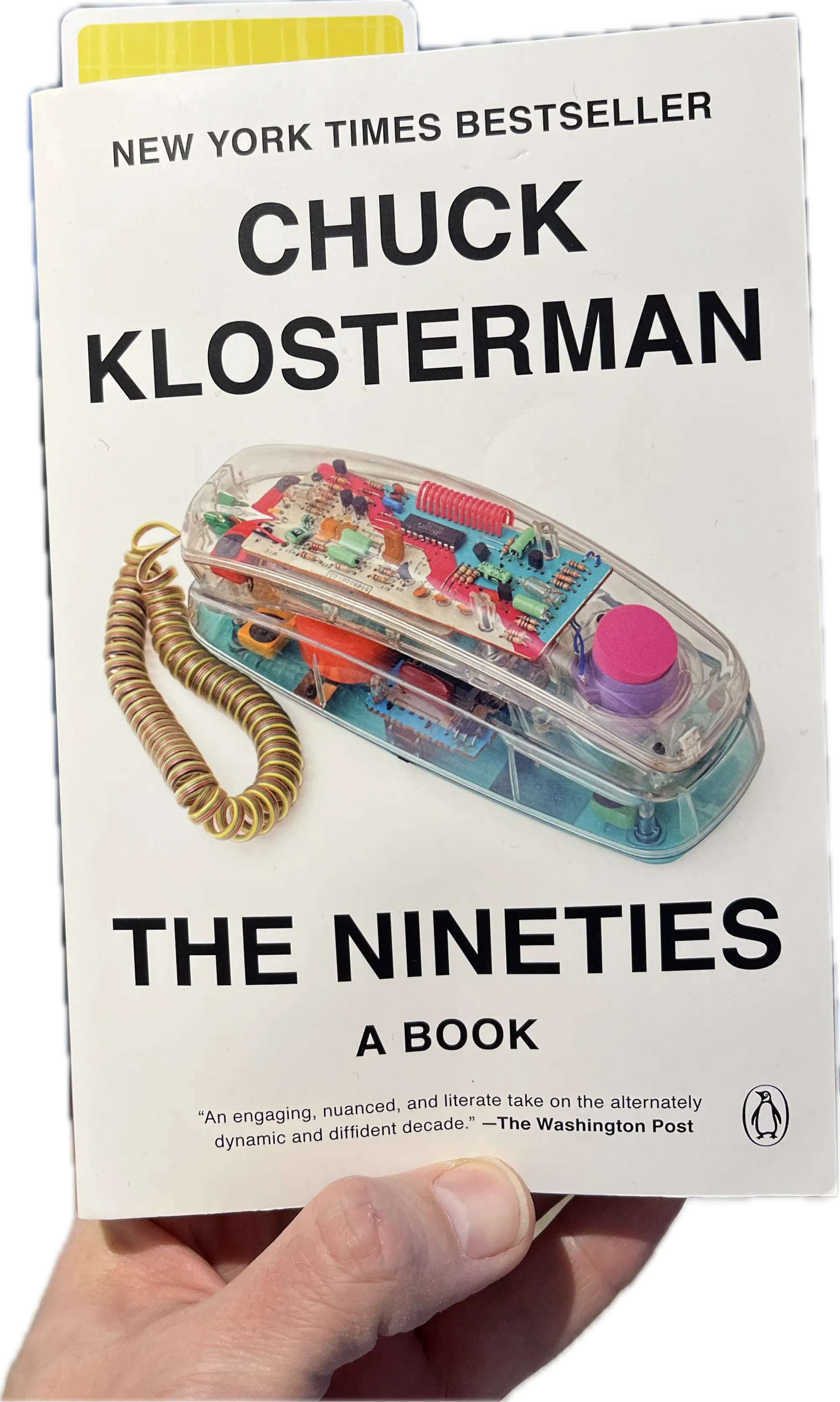The Nineties: A Book (2022)

384pp, Non fiction
Notes
2024-01-18
This isn't a bad book but it feels unfinished and incomplete, it doesn't quite hang together and by the end I was skimming chunks. There are a few sticking points for me, things like: I don't know anything about American sport so those parts were basically pointless; why should I care about college football? Having read this book which has a large chunk about college football I'm none the wiser. There's a load of stuff in here I don't care about, this isn't Chuck Klostermans fault but it points to the bigger problem.
One of the defining characteristics of the 90s that Klosterman posits is that it's the last time there was a "monoculture"; everyone watched the same TV, everyone listend to the same music etc. etc. but I feel like the content of the book undermines that argument. The title should really have been The North American 90s, the 90s the book remembers is not the 90s I (or I suspect many outside the US) remember. Yes we watched Friends but when they went to see Hootie and the Blowfish that had no meaning to me, I'd heard of the band (probably because of Friends) but they didn't get played on Radio 1 (checking the chart stats they managed a total of 6 weeks inside the UK top 75, never entering the top 40). So it wasn't really a mono culture, globally speaking, it just seemed like that from the point of view of someone inside America.
Unfounded speculation ahead: I think this illuminates an interesting property of the way teh internet has changed the range of cultural articafts we experience both collectively and as individuals. Whilst each individual has access to, and experience of, a greater range of things (music via Spotify etc. is the obvioius example), the total range of those things globally is more constrained (i.e. what's avaiable on Spotify), personal choice has trumped total cultural breadth and the makers of the recommendation algorithms are incentivised to keep the total range of stuff that people actually experience relatively narrow. Good or bad I don't know, but it's a difference that seems core to the topics the books attempts to address but it's never even glanced upon.
Traveling further down the tangent: I guess I think it's good that people have access to and are actually watching foreign language drama but I do think there's a loss insofar as sub-cultural niches can't flourish in isolation before being subject to the pressures of the global marketplace of ideas/ townsquare/ whatever your prefered metaphor is. We can't have Squid Game without it almost immediately being turned int Squid Game the reality TV show. I try not to be too old man shouts at cloud about this stuff but there it is.